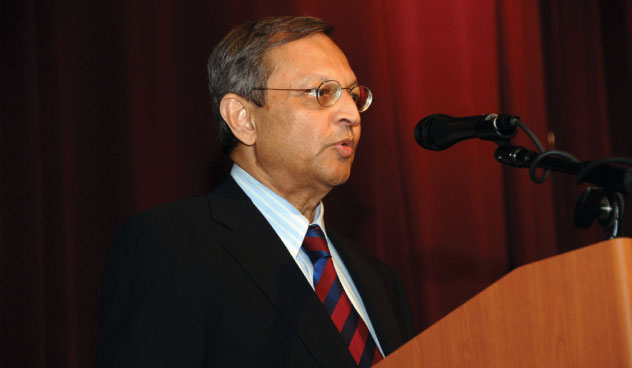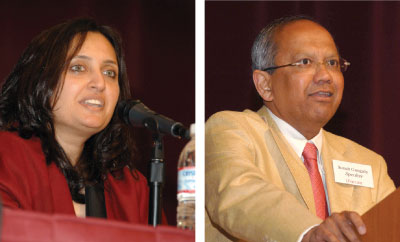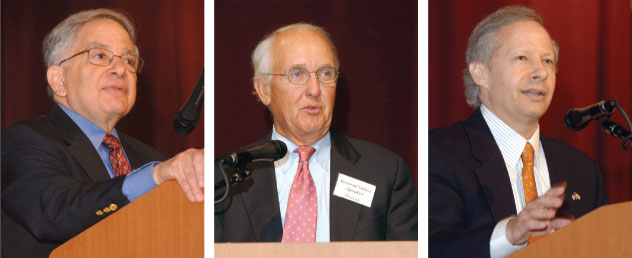|
|
|
ADVERTISEMENTS
|
|
PREMIUM
- HAPPY HOLIDAYS!
- Siliconeer Mobile App - Download Now
- Siliconeer - Multimedia Magazine - email-Subscription
- Avex Funding: Home Loans
- Comcast Xfinity Triple Play Voice - Internet - TV
- AKSHAY PATRA - Bay Area Event - Sat. Dec 6
- Calcoast Mortgage - Home Loans
- New Homes in Silicon Valley: City Ventures - Loden Place - Morgan Hill
- Bombay to Goa Restaurant, Sunnyvale
- Buying, Sellling Real Estate in Fremont, SF Bay Area, CA - Happy Living 4U - Realtor Ashok K. Gupta & Vijay Shah
- Sunnyvale Hindu Temple: December Events
- ARYA Global Cuisine, Cupertino - New Year's Eve Party - Belly Dancing and more
- Bhindi Jewellers - ROLEX
- Dadi Pariwar USA Foundation - Chappan Bhog - Sunnyvale Temple - Nov 16, 2014 - 1 PM
- India Chaat Cuisine, Sunnyvale
- Matrix Insurance Agency: Obamacare - New Healthcare Insurance Policies, Visitors Insurance and more
- New India Bazar: Groceries: Special Sale
- The Chugh Firm - Attorneys and CPAs
- California Temple Schedules
- Christ Church of India - Mela - Bharath to the Bay
- Taste of India - Fremont
- MILAN Indian Cuisine & Milan Sweet Center, Milpitas
- Shiva's Restaurant, Mountain View
- Indian Holiday Options: Vacation in India
- Sakoon Restaurant, Mountain View
- Bombay Garden Restaurants, SF Bay Area
- Law Offices of Mahesh Bajoria - Labor Law
- Sri Venkatesh Bhavan - Pleasanton - South Indian Food
- Alam Accountancy Corporation - Business & Tax Services
- Chaat Paradise, Mountain View & Fremont
- Chaat House, Fremont & Sunnyvale
- Balaji Temple - December Events
- God's Love
- Kids Castle, Newark Fremont: NEW COUPONS
- Pani Puri Company, Santa Clara
- Pandit Parashar (Astrologer)
- Acharya Krishna Kumar Pandey
- Astrologer Mahendra Swamy
- Raj Palace, San Jose: Six Dollars - 10 Samosas
CLASSIFIEDS
MULTIMEDIA VIDEO
|
|
|
|
|
COMMUNITY:
Celebrating Indo-U.S. Ties: iForum Meet
A panel of experts invited by Iforum, a Silicon Valley Indian American group, expressed satisfaction at the strides taken in Indo-U.S. ties, but counseled continued effort to ensure the ties remain close in the future. A Siliconeer report.

(Above): Indian ambassador to the U.S. Ronen Sen addressing the audience at an event hosted May 31 by iForum at the India Community Center in Milpitas, Calif. [Sameer Yagnik/Creations by Sam photo]
A panel of experts provided insights into Indo-U.S. relations at a recent meeting at the India Community Center in Milpitas, Calif. After an introductory overview on Indo-U.S relations by Indian ambassador to the U.S. Ronen Sen, a four-member panel addressed Indo-U.S. relations. The panel included Hoover Institution senior fellow Abraham Sofaer, former U.S. Assistant Commerce Secretary Raymond Vickery, Indiana University political science Prof. Sumit Ganguly and former U.S. Undersecretary of Commerce Kenneth Juster.
The event, attended by about 200 people, was hosted by iForum, a group founded by Silicon Valley Indian American leaders. The panel discussion was followed by a town hall-style meeting, where Google executive Sonal Shah spoke for Illinois Democratic Sen. Barack Obama’s campaign, Vickery represented New York Democratic Sen. Hillary Clinton, and Juster represented Republican presumptive nominee and Arizona Sen. John McCain.
 (Right): Sonal Shah of Google (l) and Prof. Sumit Ganguly. [Sameer Yagnik/Creations by Sam photo] (Right): Sonal Shah of Google (l) and Prof. Sumit Ganguly. [Sameer Yagnik/Creations by Sam photo]
Here are excerpts from what panelists in the first session had to say.
Abraham Sofaer. “When I came to American from Mumbai in 1952, my schoolmates thought anyone from India must have grown up in a jungle. . . and how could I have learned English so well? Today, Americans expect Indians to be engineers, doctors, accountants and other professionals.
“Those of us who would see this relationship continue need to . . . understand what were the policies that drove those areas to a point of success and we need to continue to pursue those policies. Keep markets open. Lower tariffs, and in this regard India must continue to play its role of confront the United States to lower its tariff in the agricultural area. And America must play its role in urging India to continue to open its markets.”
Raymond Vickery. “This facility needs to be replicated all across the United States.
The strength of America is its diversity. The strength of United States in large part in terms of South Asia are people who are in this room, Indian Americans. And what we must do is build on that strength.
“The thesis is that there is a very great what I would call a virtuous feedback loop in terms of the economic relations between the United States and India. It impacts upon our strategic relationship, and I would say it means the political ability for the U.S. and India to cooperate on issues of broad, transnational concern.
“The fundamentals are in place for U.S. India trade and investment to triple over the next five years. . . This is very important to India-U.S. relations.”
Sumit Ganguly. “(There is a) weight of the past . . . that continues to haunt Indo-U.S. relations. Structural asymmetries in Indo-U.S. relations make this relationship difficult.
“Because of the lack of contact, because of the lack of a substantive relationship during much of the Cold War, diplomatic, strategic or economic, there is still a great deal of bureaucratic inertia. . . . (the thrust for better Indo-U.S. ties at the top level) did not always find a shared commitment on the part of the lower level bureaucratic personnel.
“There are political grievances that are nurtured in both capitals.
“We have to recognize quite bluntly that there are significant asymmetries of power between India and the United States. . . India is at best a regional power with aspirations at best to be a global power. The U.S. is the predominant global power. . . . Because of the asymmetries of power, the interests of the United States and India will occasionally diverge, and one must learn to live with that.
“There are important differences in culture. India has a much more fractious political system, a political system where the political spectrum is considerably wider, and in the absence of a dominant party . . . India will have a coalition government which will be much more difficult to manage, where a cacophonous range of interests will have to be somehow accommodated, and this will make foreign policy making for the United States particularly difficult.
“The U.S. has to learn to live with this kind of prickly independence that characterizes Indian foreign policy. This is not about to go away. . . India will pursue an autonomous foreign policy and will not be anyone’s stooge or anyone’s lapdog. That is simply not going to happen.
“India also needs to see the Indo-U.S. relationship in less instrumental terms, and recognize finally now that the Cold War is long over, that its long-term substantive interests whether diplomatic, strategic or economic, lie with the United States and it should work accordingly to forge such a relationship of long standing.”

(Above, from left): Abraham Sofaer, Raymond Vickery, Kenneth Juster. [Sameer Yagnik/Creations by Sam photo]
Ken Juster. “We’ve really seen an enormous transformation of U.S. Indian relations over the last 10-15 years. The Clinton visit in 2000 provided momentum. . . President Bush, I think to his credit, had the foresight and conviction regarding the importance of the relationship.
“What has happened is the development of an entire web of relationships that was really essential in making sure that the overall dealings do not fluctuate from administration to administration but really have a stability to them that’s enduring.”
|
|
|
|
|
|